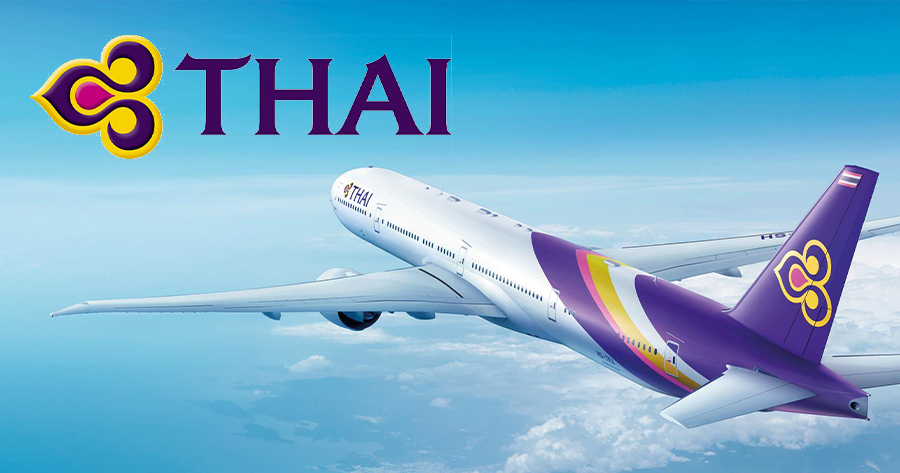Regarding the progress of the Aircraft Maintenance, Repair, and Overhaul (MRO) Center development project and other related businesses in the Eastern Economic Corridor (EEC) area at U-Tapao Airport, Mr. Chula Sukmanop, Secretary-General of the EEC Policy Committee, stated that it is currently finalizing the negotiation with Thai Airways International Public Company Limited (SET: THAI) as the company plans to invest in leasing an area of 210 rai.
THAI will propose this to its board of directors for approval and is expected to sign the land lease agreement with the EEC within next January. Initially, THAI has reported the intention to set up a subsidiary company for project operations. Details on whether to form a joint venture with any private sector partners will be decided solely by THAI. The estimated project value is THB 10 billion, with a 50-year lease period.
Mr. Chula added that the MRO project will become the largest aircraft maintenance center in Thailand and will support heavy maintenance services, which currently are available in Singapore. The establishment of the MRO center will therefore support industries, including aircraft parts manufacturing and related suppliers, with significant economic value. Additionally, the EEC will open up another 50 rai area near the MRO center to accommodate private jet services.
Mr. Chai Eamsiri, Chief Executive Officer of THAI, stated that recently THAI has registered two new companies: 1. Thai MRO Services Company Limited and 2. Thai MRO Group Company Limited. Both were established to conduct aircraft maintenance business, each with a registered capital of THB 1 million and an initial paid-up capital of THB 250,000 baht. Both are wholly owned by THAI.
For this project, THAI has partnered with Bangkok Airways Public Company Limited (SET: BA). This is not a capital joint venture, but rather an operational partnership where land will be allocated for operations and both sides will independently invest, operate, and manage their own revenues, allowing for more operational flexibility.
The MRO project covers 210 rai, of which about 30 rai will be managed by BA, while the rest will be managed by THAI due to its larger fleet. The primary purpose of the MRO investment is to support THAI’s new fleet, anticipated to grow to 150 aircraft by 2033, with any remaining capacity to be offered to other customers.
In the initial phase, the center will support maintenance for 90 aircraft annually, mainly serving domestic airlines to avoid the need to send aircraft overseas for repairs. It is expected to generate annual revenues of THB 4–5 billion, with plans to gradually add more hangars as demand increases.
On the investment details, THAI will construct a total of six maintenance hangars, divided into two phases. The first phase will involve building three hangars and related infrastructure, with an investment of THB 6 billion, scheduled to begin in 2027 and take around three years to complete. The second phase will involve constructing the remaining three hangars at a lower cost, as infrastructure will already be in place from the first phase. The MRO center can service both wide-body and narrow-body aircraft and will offer everything from minor maintenance or ramp maintenance to major overhauls.
Phillip Securities (Thailand) commented on THAI’s MRO investment plan, noting that its main target will significantly help the company manage maintenance risk, as it will no longer need to wait in line for maintenance or for aircraft parts. Maintenance can be carried out rapidly, allowing aircraft to quickly return to service. Although there are plans to invite aviation-related businesses to lease areas from THAI, this is expected to be limited, as most of the 210-rai MRO area must be used for parking aircraft while awaiting maintenance.
Regarding THAI’s performance outlook, this year is expected to be the peak. THAI’s total revenue for the year is projected at THB 154 billion baht, falling short of the previously targeted THB 190 billion by THAI’s management, as total revenue for the first nine months (Jan-Sep 2025) was THB 115 billion baht. 1Q25 (Jan-Mar 2025) was the highest revenue quarter at THB 43.2 billion, and revenue for 4Q is expected to be lower than 1Q. For 2025, profit is estimated at THB 34.5 billion, while revenue for 2026 is expected to be similar, but profit will decline.
This is due to higher expenses in 2026 from increased aircraft leases—namely the A321neo (narrow-body) and B787-9 (wide-body). As the fleet grows, employee and jet fuel costs will also rise. In the first three quarters of this year, jet fuel prices abnormally declined, but in 2026, prices are forecast to trend upwards, as indicated by 4Q’s jet fuel returning to 2024 levels.
Additionally, THAI plans to retire about four B777-200ER aircraft in 2026, which will require recognizing aircraft impairment losses. The recommendation remains “Hold” for THAI stock, with the fair value being revised and expected to align with the current market price.
Based on analyst consensus for THAI, target prices for 2025F are estimated at the average value of THB 10.42 per share, with the highest estimated value of THB 13.30. As for net profit, the analyst forecasted the estimated value of THB 34.86 billion.





